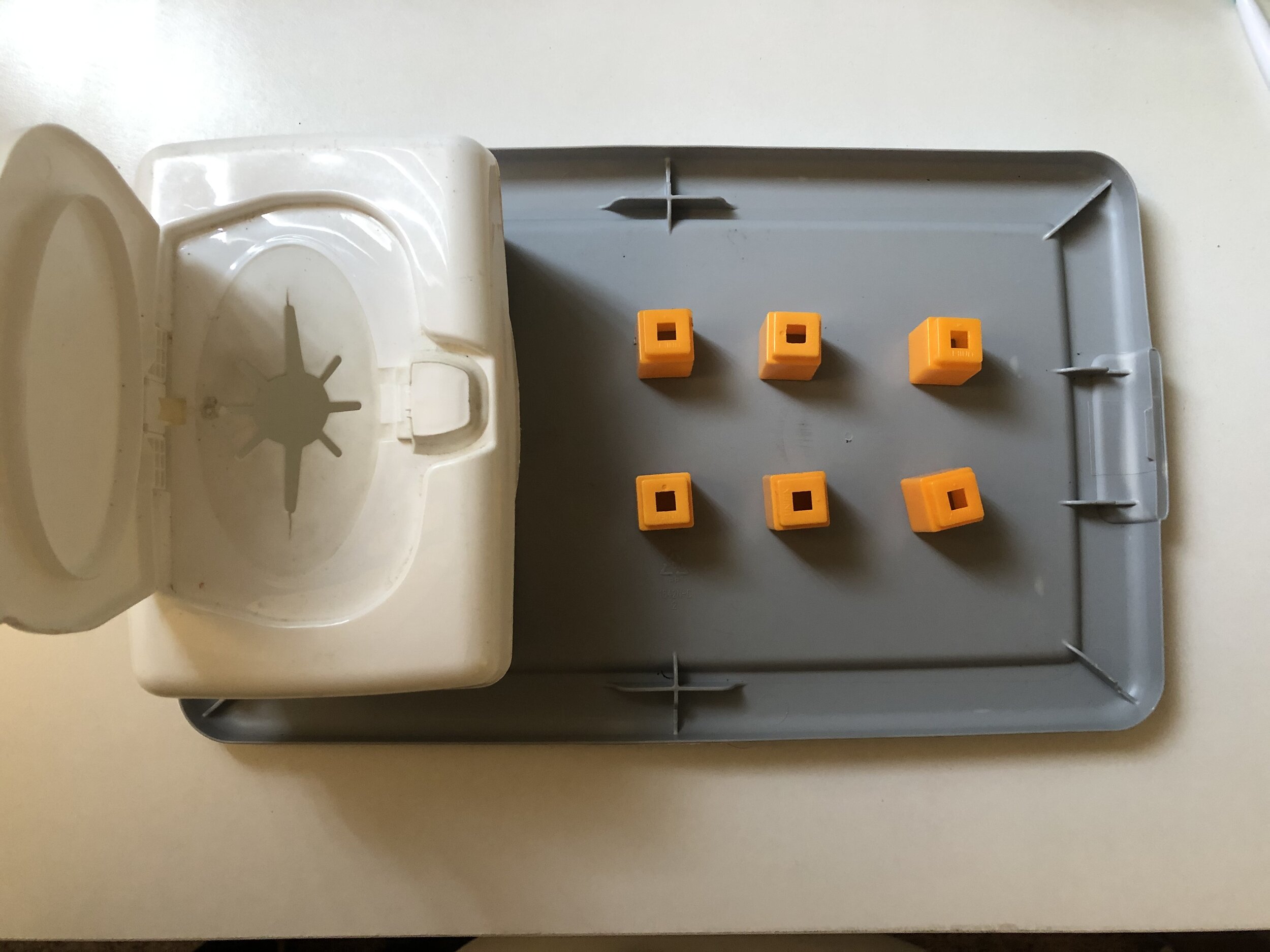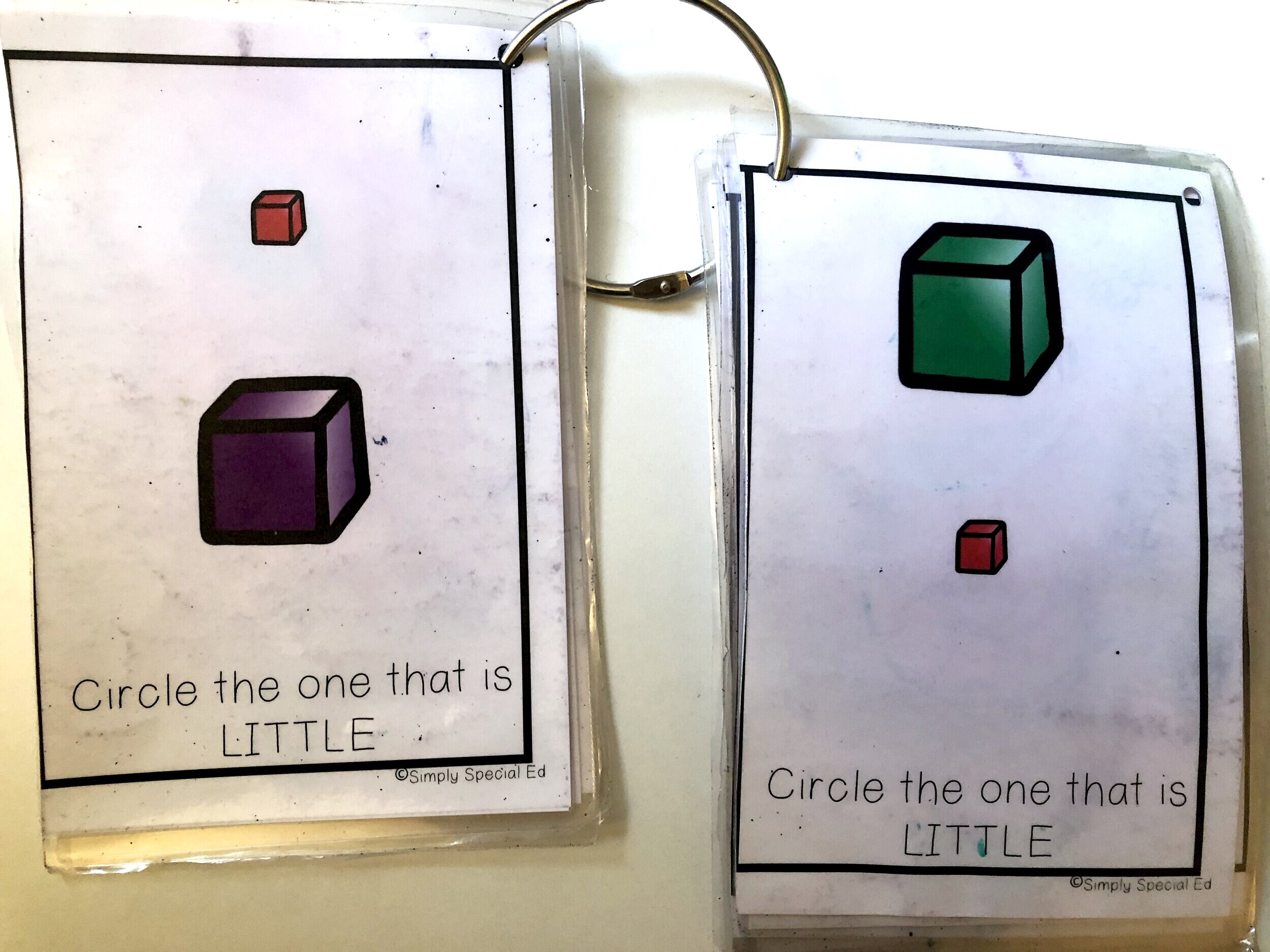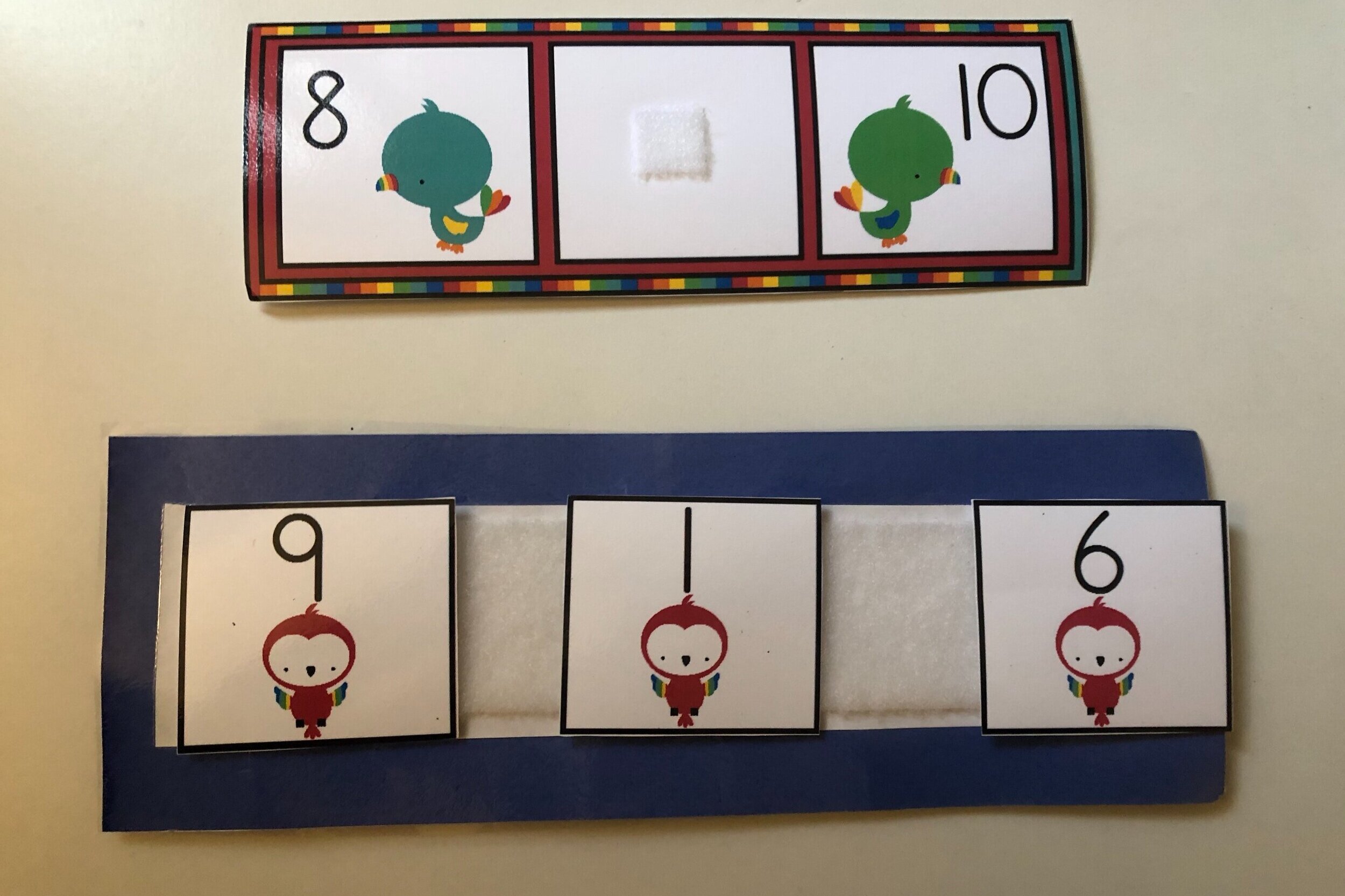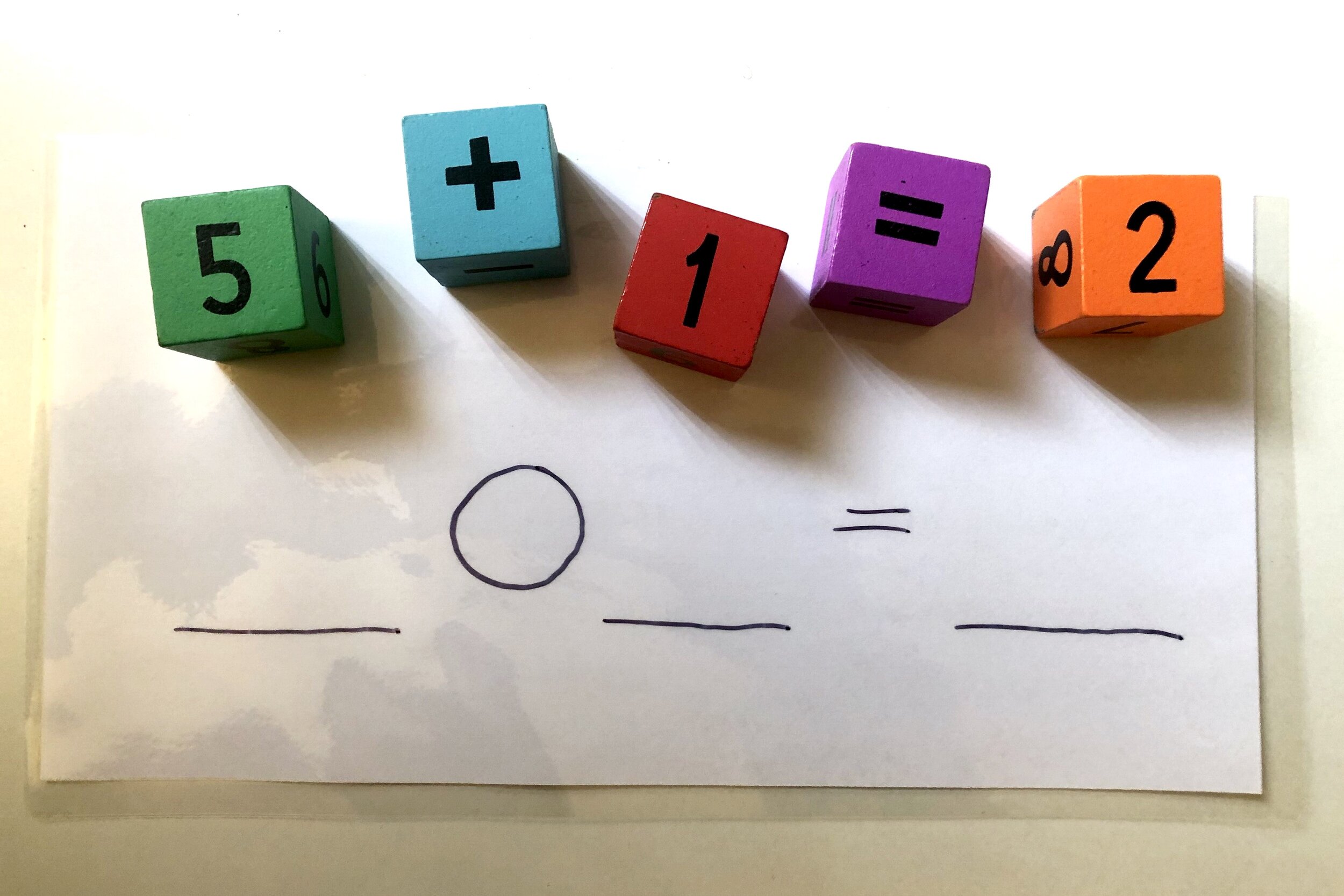Promoting Independence in the classroom is one of the most important goals. Independent centers and tasks should be tailored to the child’s individual levels and goals. If an activity is too difficult and unattainable to the child, you will most likely start seeing off task behaviors, avoidance, and/or high levels of agitation and frustration.
Like all things, independent tasks need to be taught and practiced before expecting a child to complete the activity on their own. Patience is key! It may take some time, but the benefits of an independent center are endless.
STRUCTURE
Over the years, I have designed and observed multiple ways independent centers can be setup. You can create individual student bins that each child has access to with items at their level, you can have a center completely designated to independent work/task boxes and have each child choose what they want to do, or you can have “independent time” as a class. It’s completely up to you and what works best in your specific classroom. I found that in my classroom, my students responded best to an independent center that they checked into every day. It would look like this:
DIFFERENTIATING TASKS
In the independent center, tasks were separated into three tiers: lower level, medium level, and higher leveled tasks. The tasks were ready to go each day and already separated.
Below are examples of leveled tasks that could be found in the independent center:
Lower Level Tasks
Matching & Color Related Activities
1:1 Correspondence Tasks
Counting Tasks
Basic Concept Activities
Middle Level tasks:
Sequencing Activities
Addition and Subtraction Activities
Higher Level Tasks
Word Problems
Time Tasks
Multiplication/Division Activities










